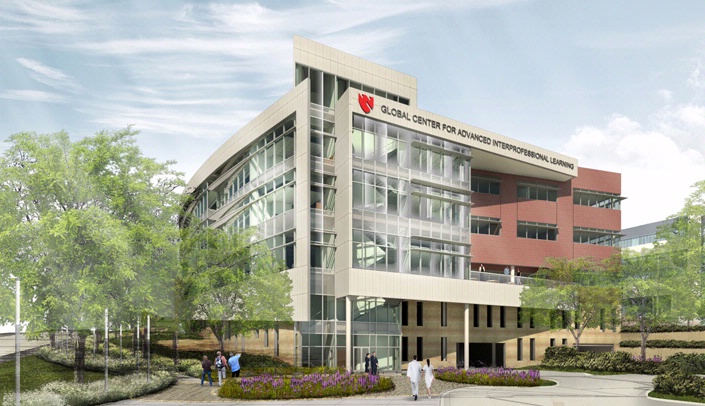Editor’s Note: Subsequent to this article, the training center was named the National Center for Health Security and Biopreparedness.
The University of Nebraska Medical Center/Nebraska Medicine have been awarded $19.8 million by the U.S. Department of Health and Human Services to develop a Training, Simulation and Quarantine Center to teach federal health care personnel procedures in treating highly infectious diseases and to create a place to monitor persons who have received a high-risk exposure to a highly infectious disease, such as Ebola.
“This is both a tremendous opportunity and responsibility, and I know our medical center will rise to the challenge,” said UNMC Chancellor Jeffrey P. Gold, M.D. “Given UNMC and Nebraska Medicine’s successful experience during the Ebola crisis, our state-of-the-art biocontainment unit, and the planned Interdisciplinary Experiential Center for Enduring Learning (iEXCEL), we are perfectly positioned to deliver on this project. We appreciate the support that Congressman Brad Ashford and the entire Nebraska Congressional delegation have shown for UNMC on this project.”
“UNMC is a worldwide leader in the fight against Ebola and other highly infectious diseases, and this funding will strengthen their ability to share their knowledge with the broader health care community,” said Rep. Brad Ashford, who helped lead the push for the funding in Congress. “This federal investment in UNMC is the result of strong collaboration between UNMC, the entire Omaha community, the state of Nebraska and our federal delegation.”
UNMC applied for the competitive funding, which stipulated that only “U.S. hospitals that have safely and successfully cared for patients with Ebola, for the full duration of their illness” were eligible. UNMC’s primary clinical partner, Nebraska Medicine, treated patients with Ebola during 2014-2015 and received nationwide attention for its success during the crisis.
In its proposal, UNMC expressed its intention to leverage its expertise, experience and institutional commitment — in partnership with the Office of the Assistant Secretary for Preparedness and Response (ASPR) — to establish the center at UNMC/Nebraska Medicine. The UNMC Training, Simulation and Quarantine Center (TSQC) will be a state-of-the-art training and simulation center and will include a dedicated quarantine center, co-located on campus with the Nebraska Biocontainment Unit.
The national center at UNMC/Nebraska Medicine will fulfill a critical training need for U.S. government health care workers as well as create a unique purpose-built U.S. quarantine facility to serve the nation’s needs.
Principal investigators on the project are Chris Kratochvil, M.D., associate vice chancellor for clinical research, John Lowe, Ph.D., director of research for the Nebraska Biocontainment Unit, and Shelly Schwedhelm, executive director of emergency preparedness for Nebraska Medicine.
“UNMC and Nebraska Medicine are proud to receive this award to develop training, simulation and quarantine services for the U.S. Department of Health and Human Services personnel,” Dr. Kratochvil said. “Our campus is dedicated to the mission of preparedness, training and treatment, and we are pleased to have the support of the state and county officials, our community, our district Congressman Ashford and the entire Nebraska Congressional delegation.”
To support ASPR’s plan to achieve unified, interdisciplinary, multilevel preparedness for the next biologic threat, UNMC/Nebraska Medicine proposed a collaboration of state, local and federal resources to establish the national asset at UNMC/Nebraska Medicine for experiential training and quarantine.
During the Ebola outbreak, UNMC/Nebraska Medicine was recognized as a national asset and referred to as the “gold standard” for treatment and for developing training safety protocols to handle Ebola and high infectious diseases.
“In 2014, when the world needed us, Nebraska Medicine was here,” said Nebraska Medicine CEO Daniel DeBehnke, M.D., M.B.A. “We saw during that crisis the importance of preparation. This grant helps us prepare for what’s next, so Nebraska will again be ready not only to help, but to lead the way in teaching others how to help.”
